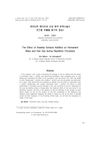1 citations,
August 2022 in “Veterinary medicine and science” The main prostate diseases in dogs are benign growth, infections, and cancer, with various treatments ranging from drugs to surgery, but cancer treatments have limited success.
1 citations,
January 2022 in “Annals of Dermatology” Dutasteride is more effective than finasteride for long-term hair growth in men with androgenic alopecia.
1 citations,
April 2024 in “Pathogens” A pet ferret had a serious infection from Mycobacterium xenopi, which can spread to humans.
 1 citations,
July 2023 in “Journal of visualized experiments”
1 citations,
July 2023 in “Journal of visualized experiments” The new method makes it easier to study the whole cochlea from newborn mice and rats in the lab.
1 citations,
April 2022 in “Applied sciences” Bitter melon extract may help prevent hair loss and can be used in cosmetic products.
December 2024 in “Journal of Clinical Medicine” PCOS and eating disorders are linked by hormonal imbalances, needing personalized treatment.
 July 2024 in “Chinese Medical Journal”
July 2024 in “Chinese Medical Journal” Peripheral blood alive cell treatment is effective and safe for treating hair loss.
 July 2024 in “Journal of Investigative Dermatology”
July 2024 in “Journal of Investigative Dermatology” Losing both ERBB2 and ERBB3 receptors in mice causes significant skin problems and inflammation.
 June 2024 in “Australasian Journal of Dermatology”
June 2024 in “Australasian Journal of Dermatology” Tofacitinib is safe and effective for treating moderate-to-severe alopecia areata.
 June 2024 in “ESMO Gastrointestinal Oncology”
June 2024 in “ESMO Gastrointestinal Oncology” The combination treatment showed a higher response rate but no significant survival benefits.
 November 2023 in “BMC women's health”
November 2023 in “BMC women's health” Older age and specific haircare practices increase the risk of traction alopecia, and education on these factors could help prevent it.
November 2023 in “Plants” Compounds from Jatropha cordata bark have significant anti-inflammatory effects and could help with hair loss.

Eriocitrin and silymarin might be effective for hair loss treatment and need more research.
 October 2023 in “Cell & bioscience”
October 2023 in “Cell & bioscience” A special gene region controls the re-emergence of a primitive wool type in Merino sheep, improving their wool yield and adaptability.
 October 2023 in “Clinical, Cosmetic and Investigational Dermatology”
October 2023 in “Clinical, Cosmetic and Investigational Dermatology” Supplemented Erzhi Wan may help regrow hair in male pattern baldness by affecting certain cell signaling pathways.
 December 2022 in “Journal of neurodevelopmental disorders”
December 2022 in “Journal of neurodevelopmental disorders” Hair follicle sampling is a practical method for measuring biomarkers in children with and without Fragile X syndrome.
 February 2022 in “Endocrine connections”
February 2022 in “Endocrine connections” People with reproductive, thyroid disorders, and type 2 diabetes can experience voice changes, but more research is needed to understand this better.
November 2019 in “BMC veterinary research” The hair loss in Belgian Blue crossbred calves was caused by a diet issue, not by disease or infection.
 January 2024 in “Current research in toxicology”
January 2024 in “Current research in toxicology” Thallium is highly toxic, causing severe health issues, and Prussian blue is the best antidote.
 December 2022 in “Geriatrics”
December 2022 in “Geriatrics” Good communication helps predict successful aging in older Indonesians.
 September 2022 in “Polish Hyperbaric Research”
September 2022 in “Polish Hyperbaric Research” Some treatments for hair loss, like finasteride, biotin, and minoxidil, can be effective, but their success varies by individual case.
 19 citations,
May 2005 in “Archives of Environmental & Occupational Health”
19 citations,
May 2005 in “Archives of Environmental & Occupational Health” All immigrant workers in the study had skin problems, with fungal nail infections, athlete's foot, and acne or folliculitis being most common, affecting their quality of life, yet they didn't seek medical help.
 21 citations,
November 2018 in “Journal of Psychosomatic Obstetrics & Gynecology”
21 citations,
November 2018 in “Journal of Psychosomatic Obstetrics & Gynecology” Women with PCOS have more emotional and body image issues than healthy women.
 50 citations,
September 2014 in “Stem cell reports”
50 citations,
September 2014 in “Stem cell reports” BLIMP1 is essential for skin maintenance but not for defining sebaceous gland progenitors.
 65 citations,
January 2009 in “Annals of Dermatology”
65 citations,
January 2009 in “Annals of Dermatology” Zinc supplements increased zinc levels in some hair loss patients but didn't significantly improve hair growth.
 34 citations,
August 2003 in “Clinical and Experimental Dermatology”
34 citations,
August 2003 in “Clinical and Experimental Dermatology” Pregnant women's hair gets thicker.
 21 citations,
August 2011 in “Body Image”
21 citations,
August 2011 in “Body Image” Acceptance reduces hair loss distress and medical consultations; coping mechanisms increase them.
 5 citations,
June 2013 in “Fashion business”
5 citations,
June 2013 in “Fashion business” Rosehip extract improves hair wave, thickness, and color vibrancy.
 4 citations,
September 2016 in “Journal der Deutschen Dermatologischen Gesellschaft”
4 citations,
September 2016 in “Journal der Deutschen Dermatologischen Gesellschaft” Some skin patients have body image issues linked to social difficulties but want psychological help.





















